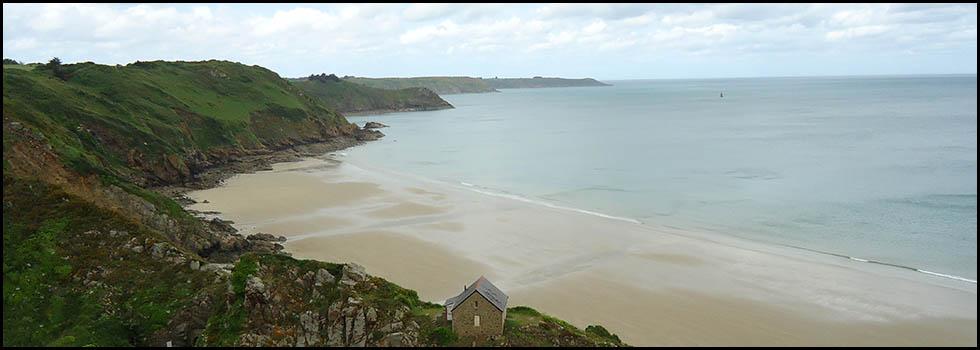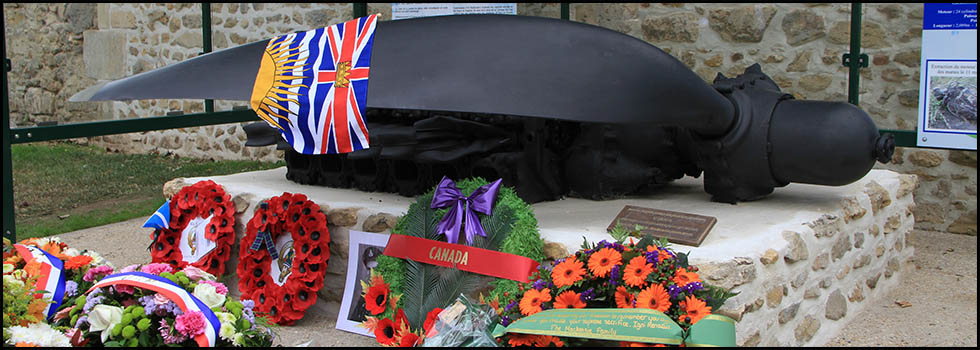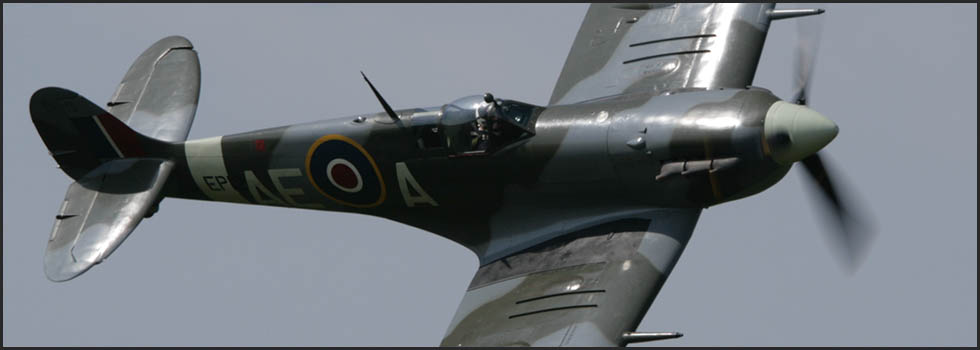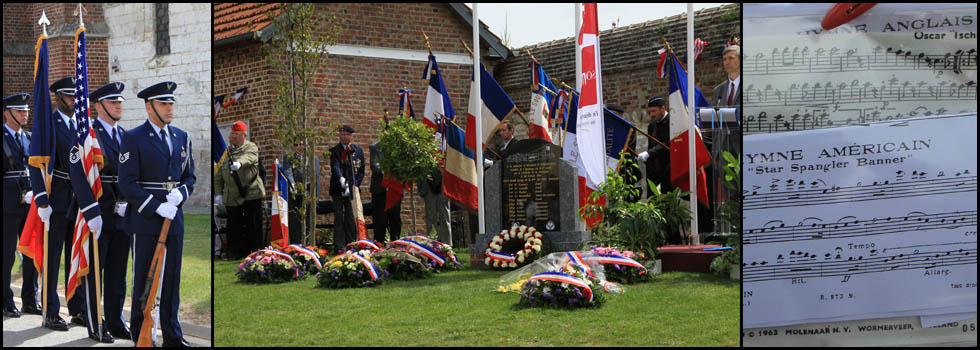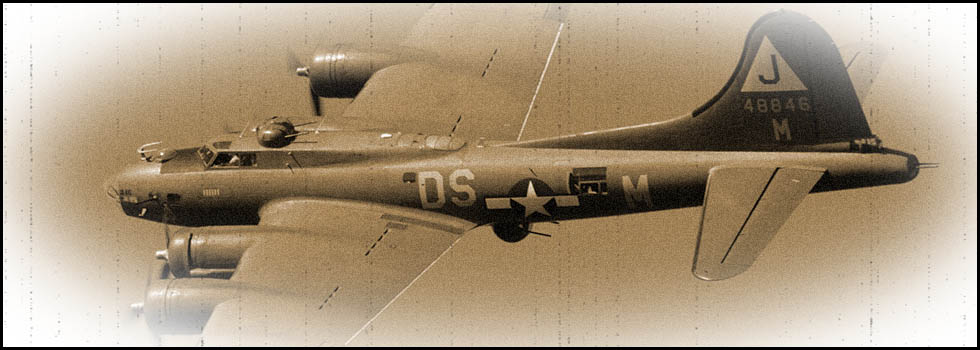30 September 2023
Tribute to the Eckert family
Noailles (Oise)
Copyright © 2024 - Association des Sauveteurs d'Aviateurs Alliés- All rights reserved -
En français ![]()
On this sunny September day, a tribute was paid to the memory of Robert Eckert, his wife Marthe and his family.
During the Second World War, this family took enormous risks by sheltering, for varying lengths of time, many Allied airmen wanted by the enemy. It was therefore important for our Association to recall their commitment and courage in the face of the Nazi occupiers and the Vichy regime. Their farm, located on rue Mignon, served as a refuge for many Allied airmen who fought, often at the cost of the greatest sacrifice, for the return of Freedom to our country.
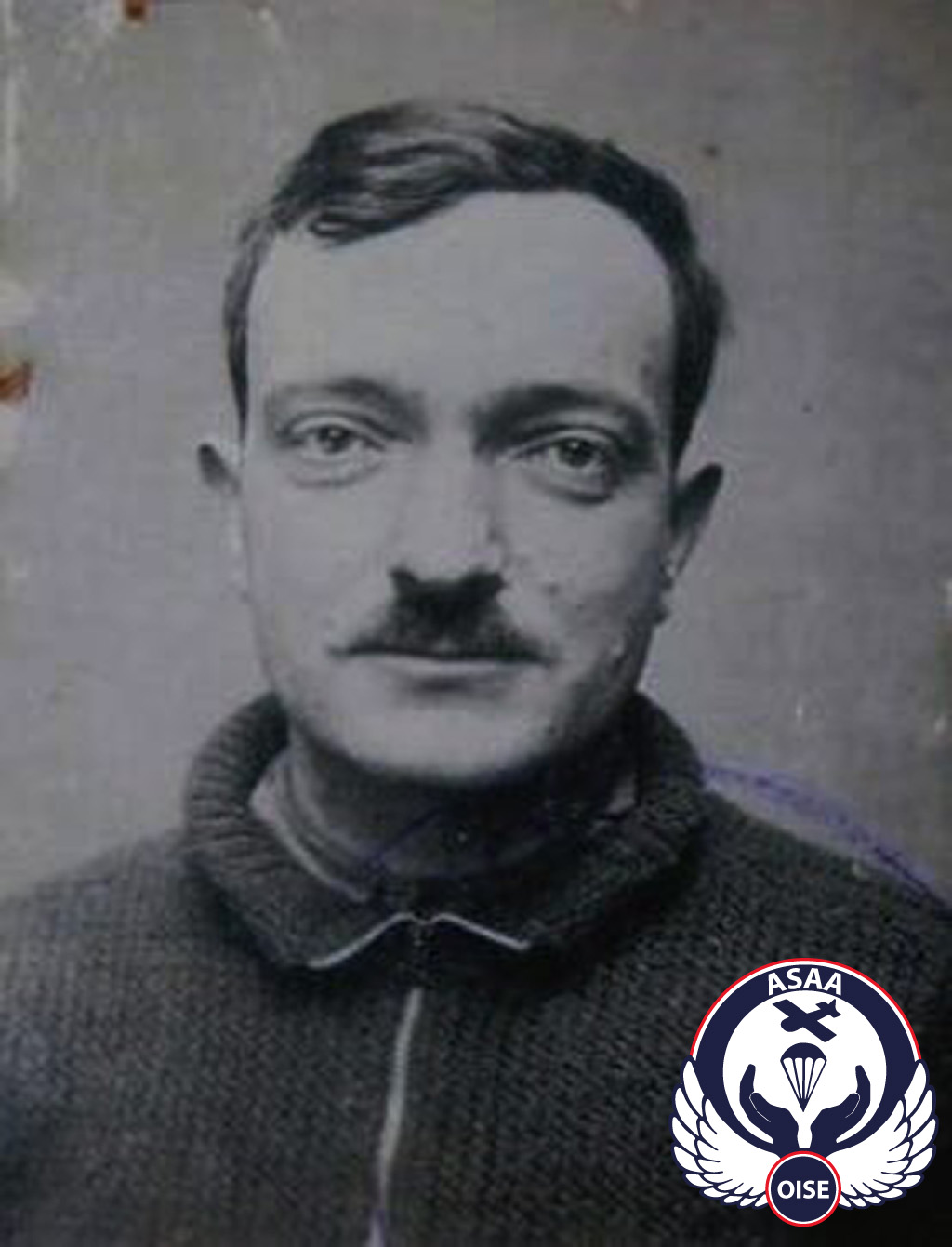
Robert Eckert
Yvette Eckert, eldest daughter of Robert and Marthe Eckert, honored us with her presence despite her advanced age. She was 10 years old at the time, and still has fond memories of the intrepid aviators her parents took in.
It was also to have Glenda Gray and Jane Cooper with us. Their grandfathers, 2nd Lt. Glenn Camp and 2nd Lt. Jarvis Cooper, pilot and navigator in the same crew, were among the American airmen hosted by the Eckert family for over a month, from late January to early March 1944. Their destinies were linked until the end of the war. It was truly exceptional to see their two granddaughters reunited for the very first time on this day of tribute.
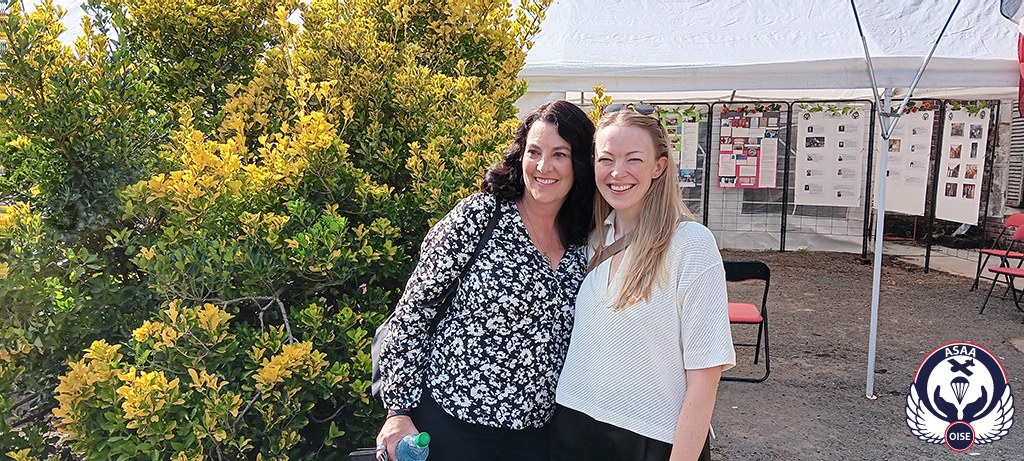
Glenda Gray and Jane Cooper
Members of the Association N'Oublie Pas 44 came with their vintage Jeeps, as did others from the Association Jericho 44.
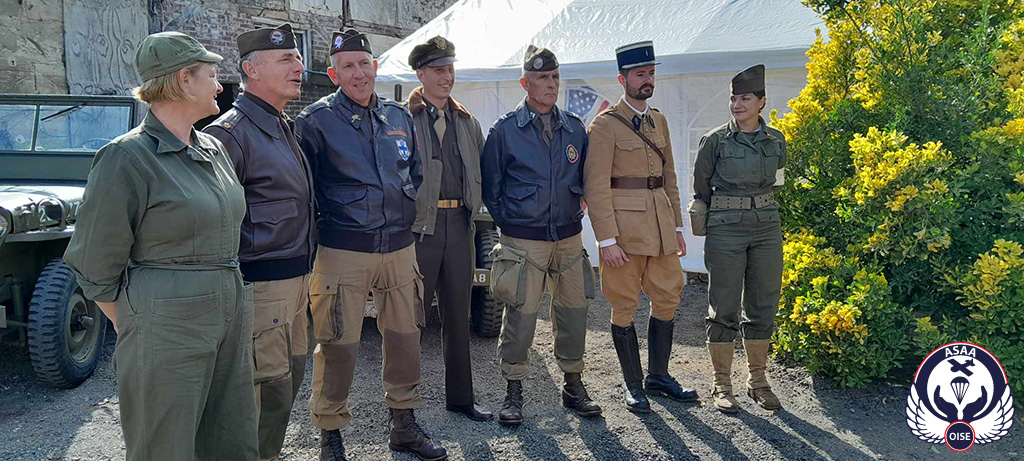
The first part of the ceremony began in the farmyard, with the introduction of those present.

Afterwards, all present proceeded to the street to unveil the plaque affixed to the porch of the farmhouse, decked out for the occasion with the British, French and American flags.
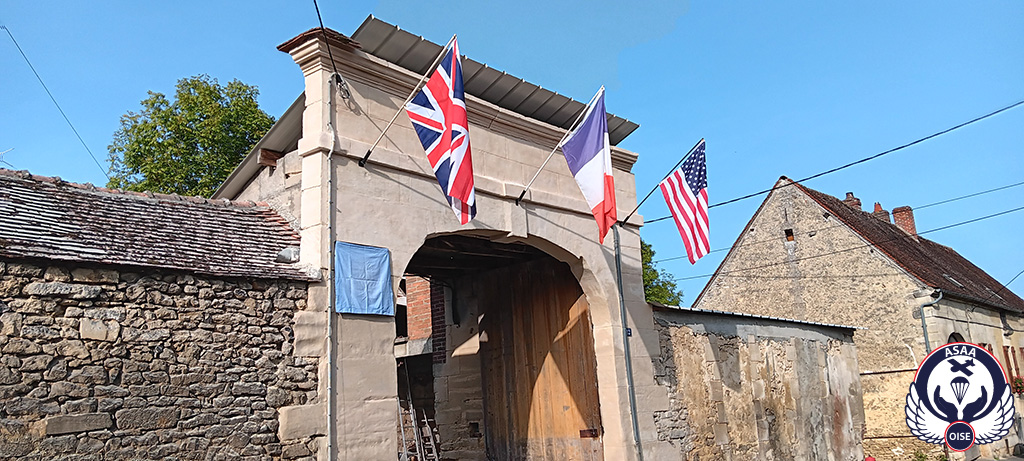
The honor of unveiling the commemorative plaque fell to Jane, Glenda and Yvette, who were particularly overwhelmed by emotion.
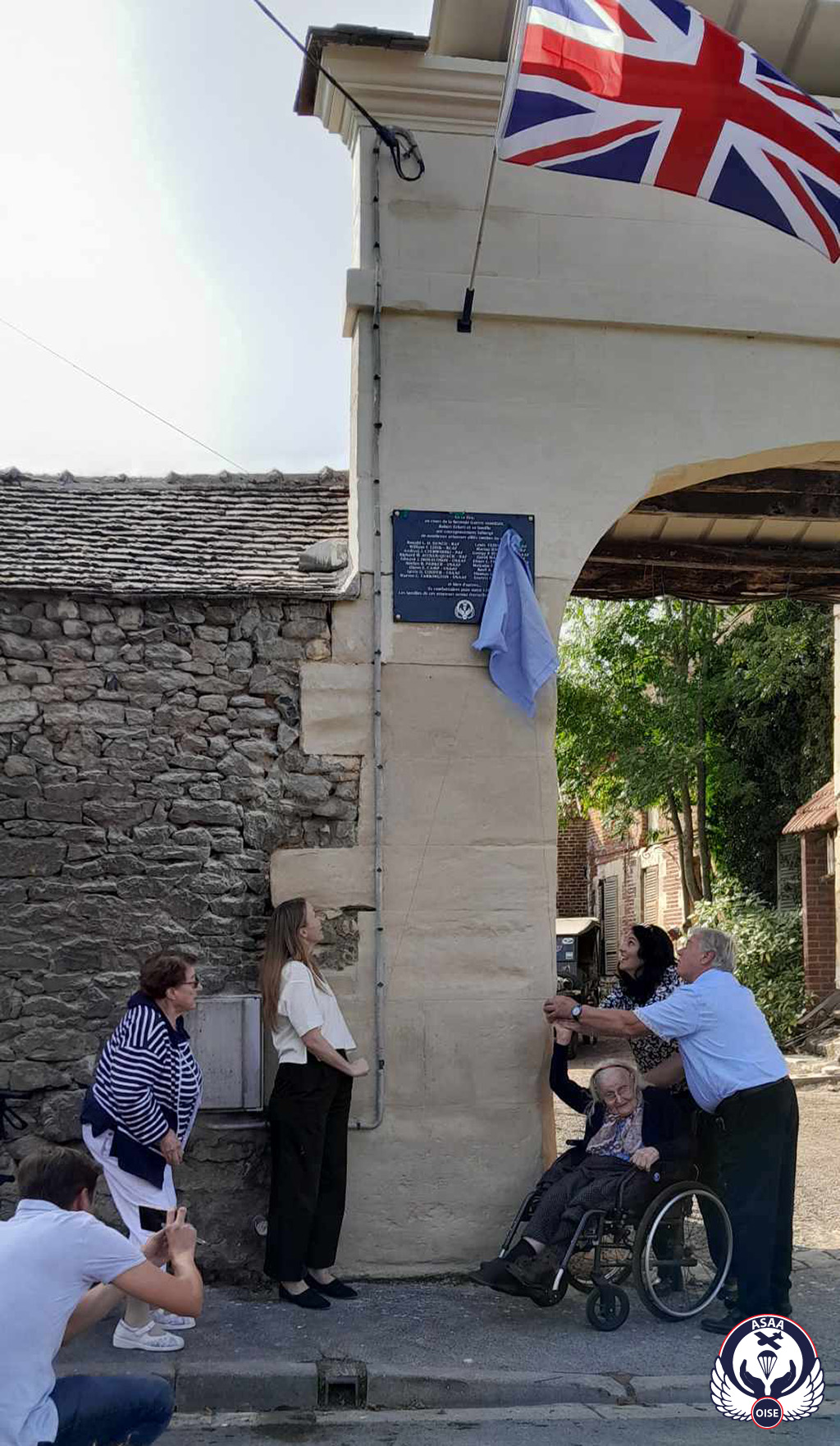


They were mainly British and American. They also included a Canadian, a Pole and a New Zealander
who fought in units integrated into the Royal Air Force.
18 airmen's names are engraved on the plaque, but many more stayed with the Eckert family, some for only a few hours.
The audience was then invited to return to the farmyard for the rest of the speeches.
The exemplary role played by Robert Eckert and his family in sheltering so many Allied airmen was evoked at length.
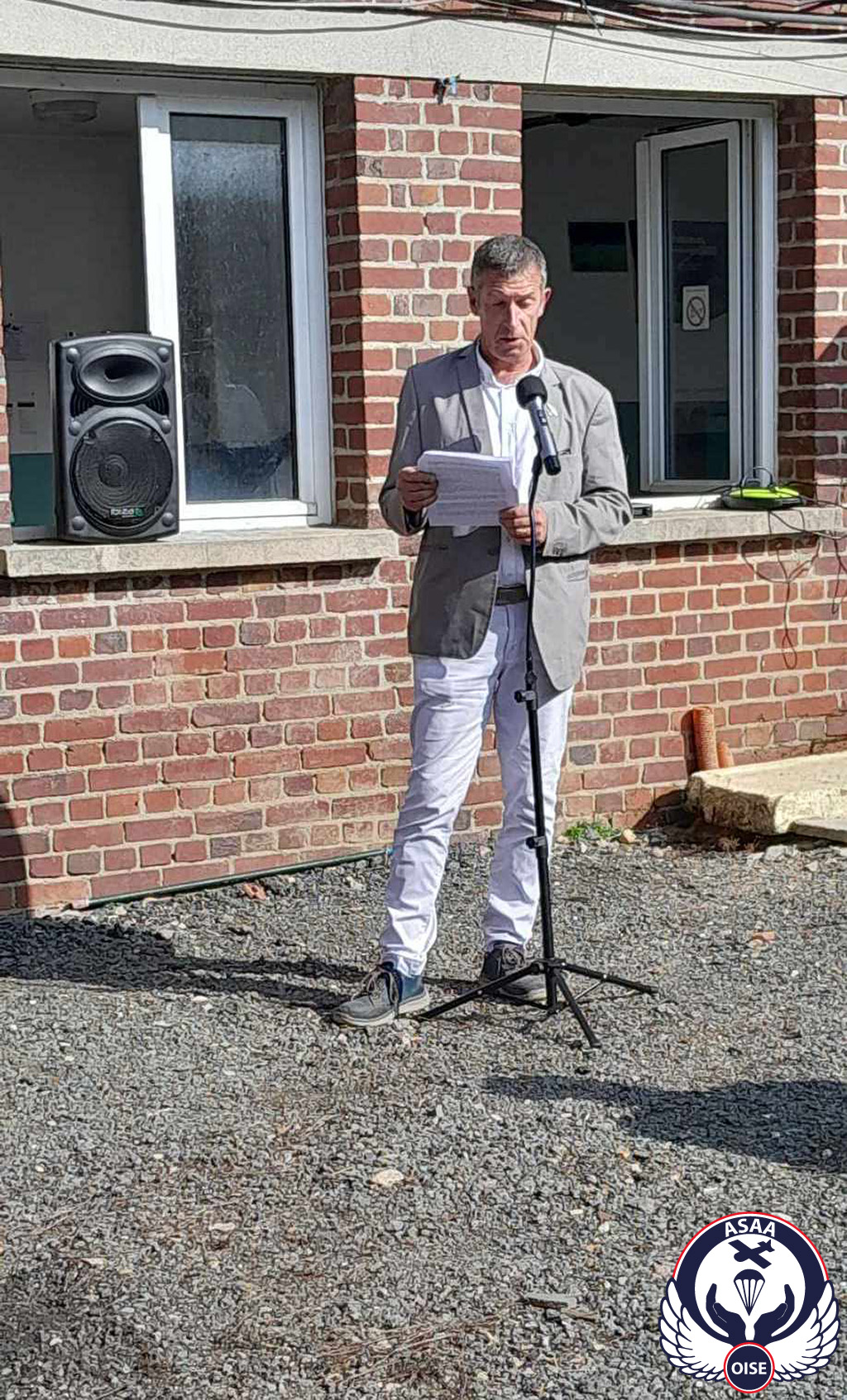
Robert Eckert had been taken prisoner during the French Campaign in 1940. In 1942, the Germans decided to release those who belonged to the Health Service. Robert Eckert pretended to be one of them and, demobilized some time later, returned home to Noailles.
It was the dark days of the Occupation. The enemy was omnipresent in Noailles. Robert Eckert, a quiet, unassuming man with a sturdy figure, had been appointed municipal agricultural delegate. Every week, a German officer would come to the farm to meet him and take care of the requisitions and samples taken from the various farmers in the area.
The first airman to be rounded up arrived one evening in August 1943 with André Buchon, Robert Eckert's brother-in-law. They had come by bike from Rumaisnil in the Somme. The airman turned out to be F/Sgt. Ronald Dench, a Royal Air Force fighter pilot. He stayed with the Eckert family for around two months before continuing his escape, managing to return to England, via Spain, in November 1943.
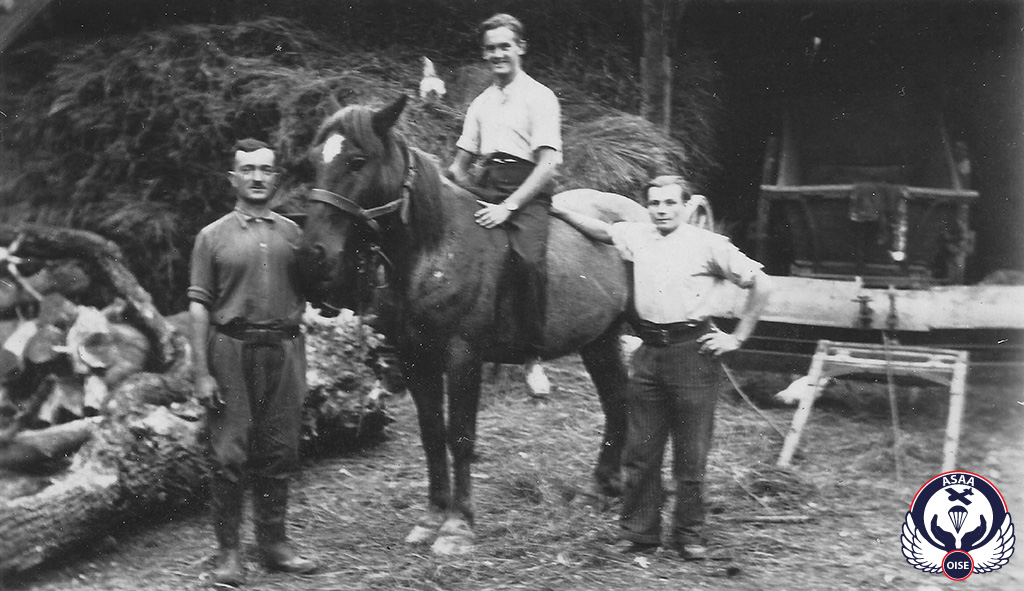
Robert Eckert, Ronald Dench and André Buchon
From then on, Robert Eckert, his wife and his two daughters were immersed in clandestine action, and affiliated with the “Secret Army”. A very young boy of Jewish origin was also entrusted to them for the duration of the war, to protect him from persecution.
The Eckert family farm was to become an important link in the Alsace escape network created in the Oise region by Gilbert Thibault. Many airmen who had fallen from the sky were entrusted to their care. The farmhouse became a refuge while they waited to continue their escape on the long road to freedom. In these times of restrictions and shortages, it was necessary to find the means to feed and clothe them, find them tobacco, and provide them with false identity papers and work certificates. The risks were enormous. The slightest imprudence could prove fatal. The Germans promised rewards to anyone who reported the presence of airmen.
Their protégés had to remain confined all day, and only came out in the evening to get some fresh air. While waiting for the next stage of their escape to be organized, they occupied their long days playing cards with the two little girls in the house. Yvette particularly remembers 2nd Lt. Jarvis Cooper, to whom she tried to teach a few words of French.
Airmen often arrived and left with Pierre Chardeaux, a member of the Alsace network, a Beauvais vet with a pass, or Gilbert Thibault. Departures were made in groups of 4 or 5. It was time for farewells and thanks, with promises to meet again after Victory. Everything happened very quickly, in under 10 minutes, for fear of being tracked. Generally, the airmen were taken to the Beauvais-Auneuil sector before being transported to Paris. Handed over to other escape routes, such as Comet, Burgundy or Shelburn, most managed to reach England, via Spain or Brittany. Others were unfortunately taken prisoner in the weeks that followed.
After four years of Occupation, the time of Liberation arrived. In the immediate post-war period, Robert Eckert and his family were justly recognized by the British, American and French governments for their courageous contribution and dedication to the Allied cause. A number of airmen visited them over the years to thank them personally.
Robert Eckert was, for many years, the flag-bearer of the Noailles veterans' section. He died in March 1991, one year after his wife.
The floor was then given to Glenda Gray, who was honored to pay tribute to the Eckert family in memory of their bravery, sacrifice and care in sheltering allied airmen.
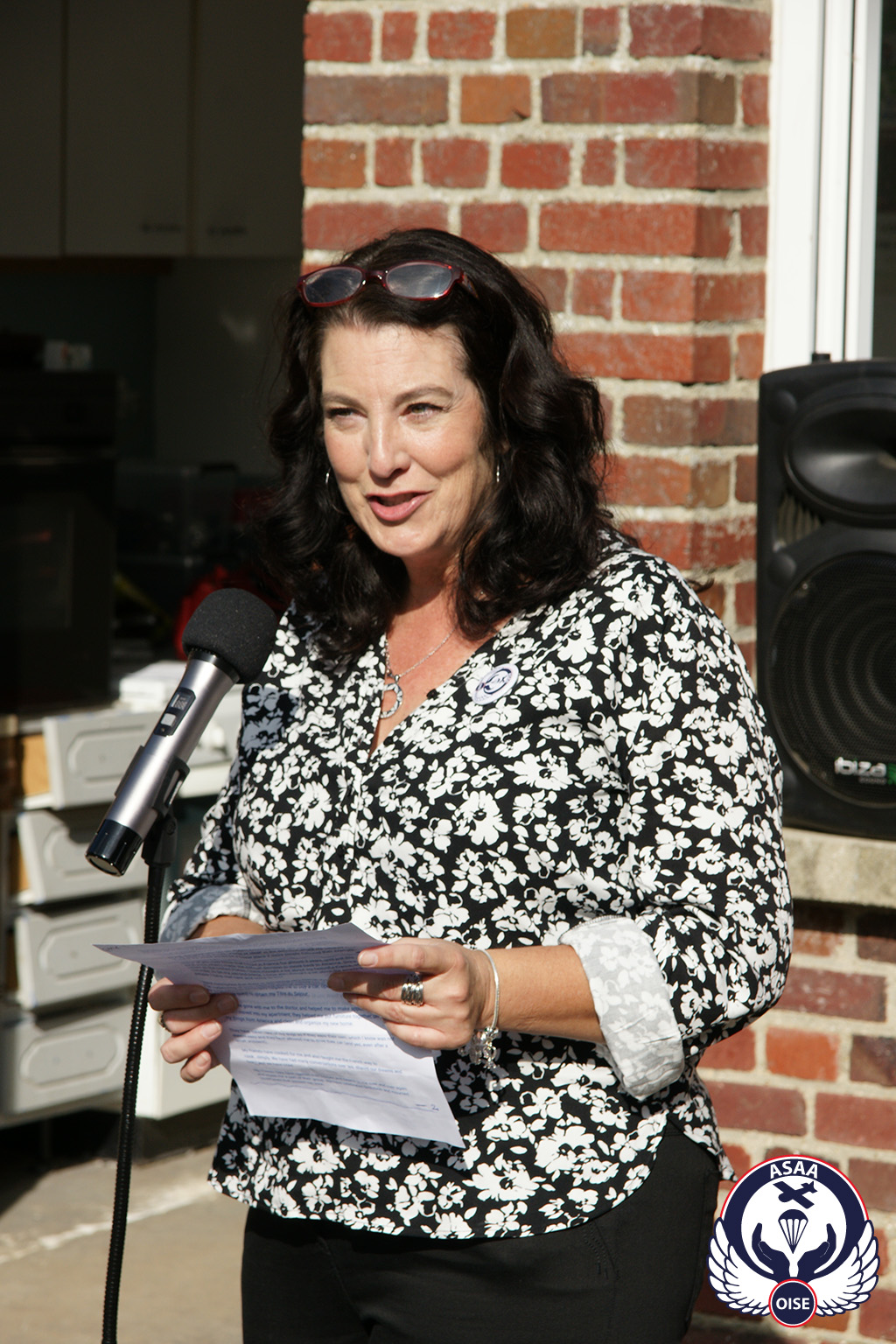
“I looked up the definition of the word 'hero' in the dictionary and it says a man of remarkable courage or ability, admired for his courageous deeds and noble qualities... a person who, in the opinion of others, possesses heroic qualities or has performed a heroic deed and is regarded as a model or ideal. For me, the word 'hero' fits Mr. Robert Eckert perfectly. Not just Mr. Eckert, but his whole family. The words 'model' or 'ideal' struck me because I believe the world would be a better place if more people followed their example. Members of the Eckert family fed, clothed, hid, protected and cared for at least 18 Allied airmen, including my grandfather, Glenn Camp, pilot of the B-17 'Judy'. At the time, there was a little girl who had befriended my grandfather in particular. Yvette Eckert, who is with us today, told my mother and me about her memories with Glenn and how he had taught her to play cards. Something so sweet and normal in the midst of such horror brought tears to our eyes as we talked about it. The Eckert family did all this, knowing that it meant certain death at the hands of the Nazis if they were caught helping allied airmen. I often think about that, and I'd like to think that I would have been just as brave and selfless, but you never know until you're in that situation”.
Moved to find herself in the very place where her grandfather had been hidden, Jane Cooper thanked the Eckert family.

"Being here, meeting Yvette, seeing the places where WWII impacted the people who lived here, seeing where my grand-father was hidden, and now I walk proudly in his footsteps with so much gratitude. Gratitude for Yvette and her family ; gratitude for all the helpers who put themselves in peril to save Allied airmen ; gratitude for my grandfather and all that fought in the war and gratitude for those who work so hard to keep the memories close, to honor those who fought for a world free from the hate and destruction of the Nazis. I am here today in small part because of the efforts of Yvette and the Eckerts and the French Resistance. I see shades of my grand-father in the face of my 2 year old son. I look forward to sharing with him stories of his great-grand-father, coming here to visit and instilling in him the lessons of courage, compassion, service that everyone here embodies".
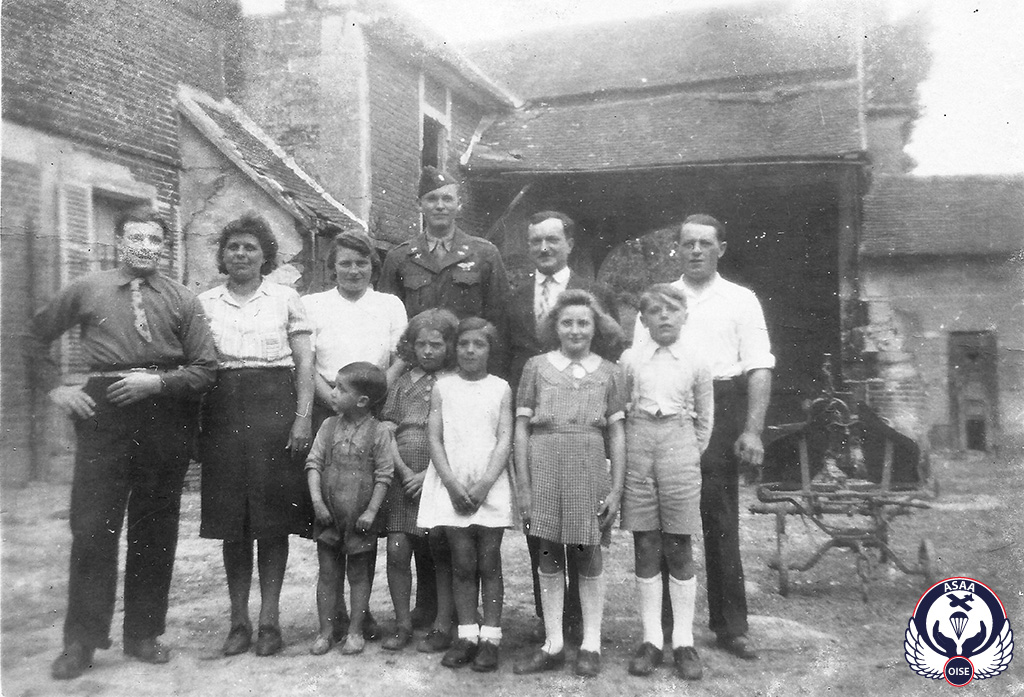
Returning from captivity in 1945, 2nd Lt. Jarvis H. Cooper surrounded by the Eckert family.
The floor was then given to Gérard Eckert, who thanked those present for coming to honor his parents' involvement in the Second World War.
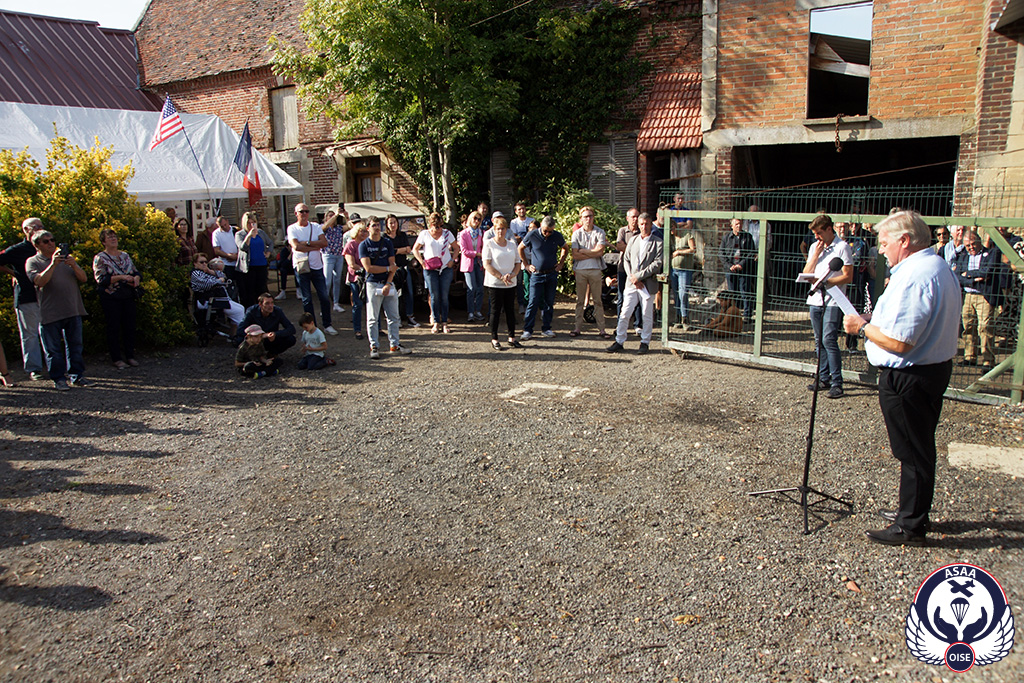
“...The commemorative plaque will forever represent a part of the history of Noailles on the site where many Allied airmen, who came to liberate France, were sheltered by my parents from August 1943 until the Liberation. On my behalf and on behalf of all the descendants, we are very grateful. People disappear, but memories remain”.
The national anthems followed.
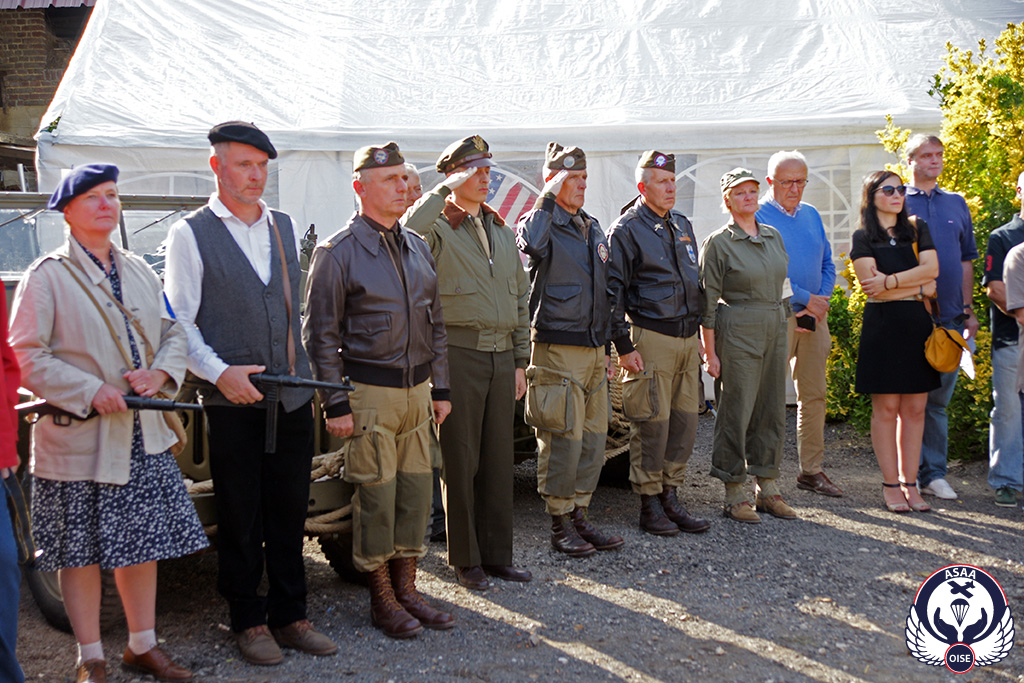
This beautiful day of tribute ended with the sharing of a glass of friendship.
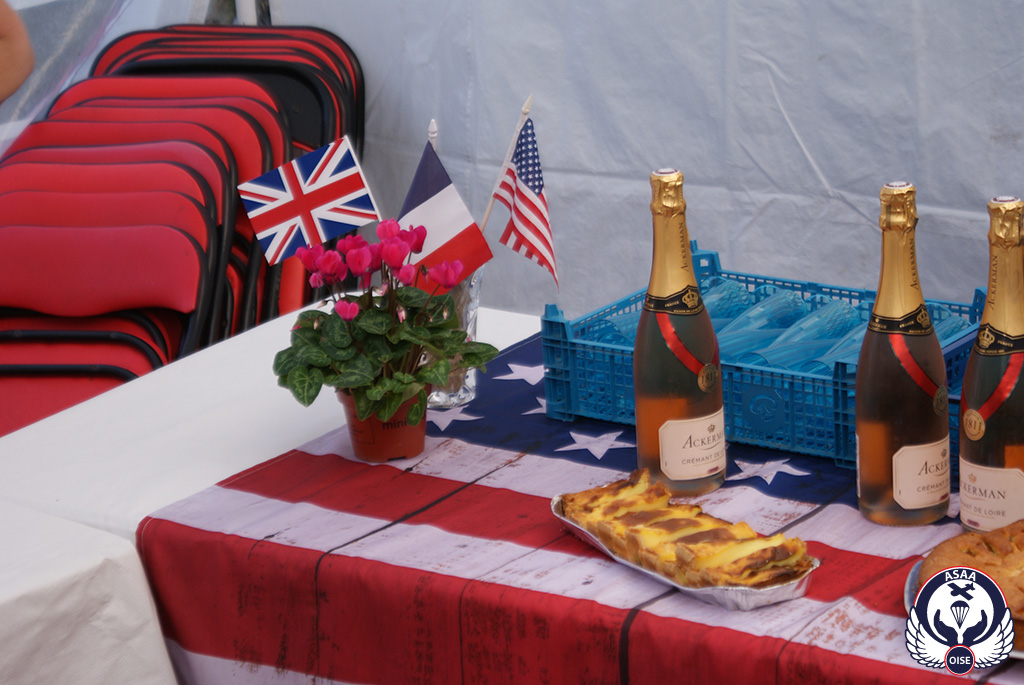
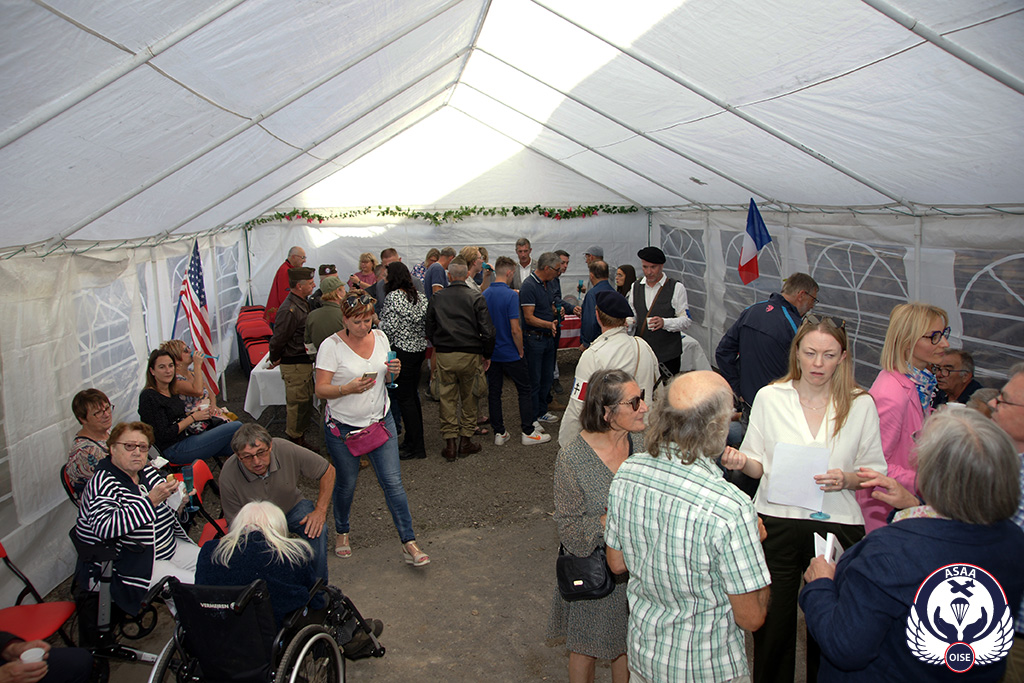
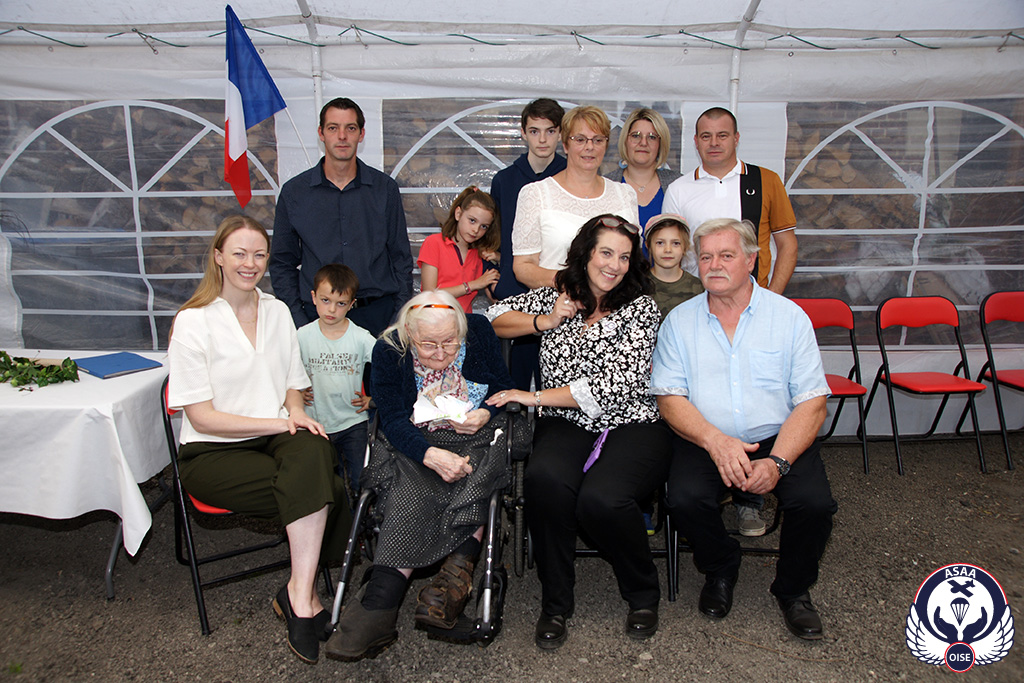
Jane and Glenda with the Eckert family
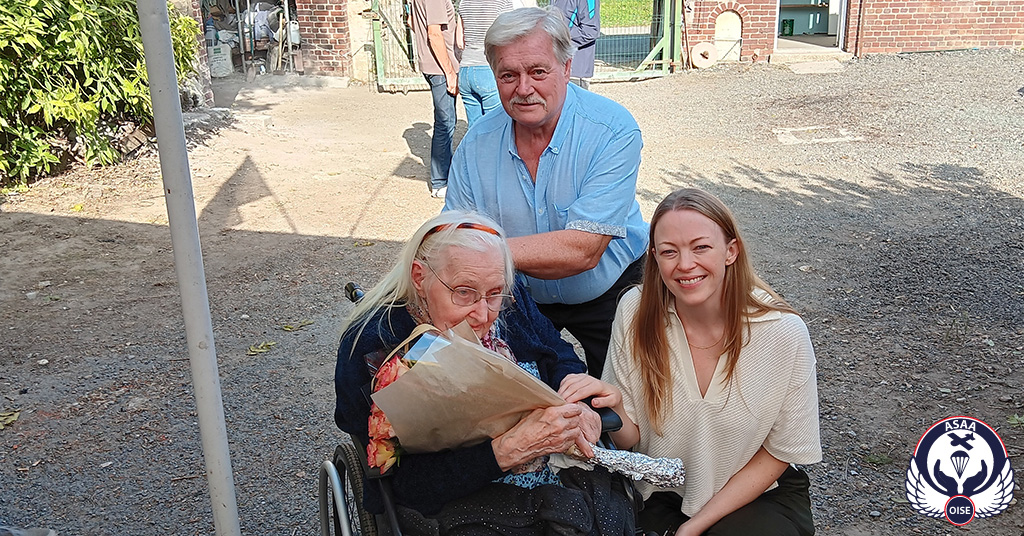
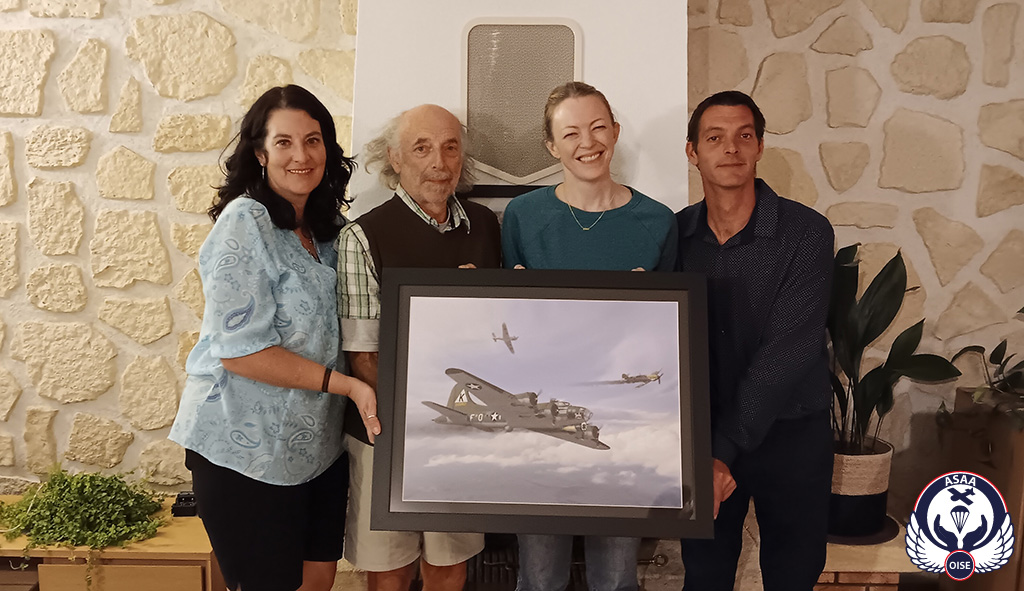
Glenda Gray, Jean-Marc Sauvage, Jane Cooper and Mickaël Eckert.

